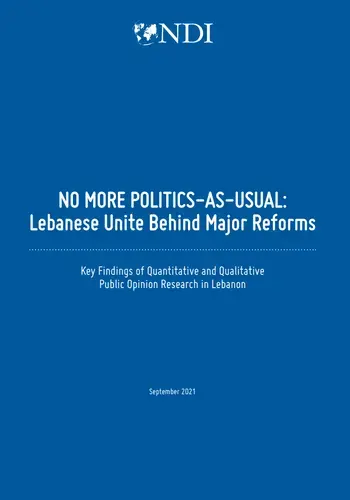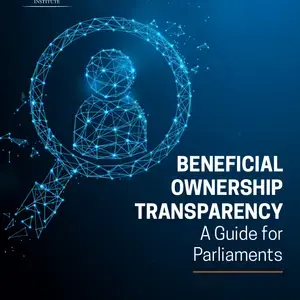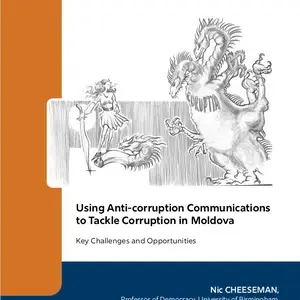The National Democratic Institute (NDI) conducted quantitative and qualitative public opinion research between March and June 2021 in Lebanon, that examined the legacy of the protest movement, how people feel about the government, political parties, and politicians, who citizens trust to represent their needs, and what people see as the best possibilities for reform.
The key findings and themes that emerged from the research are:
- Citizens do not trust or feel represented by political and governing institutions. There is a pervasive lack of trust of politicians and officials at all levels of government and of political parties in general, as well as a lack of trust in what citizens see as a biased media ecosphere controlled by the political parties.
- Economic assistance and structural reform are urgent policy priorities. Economic stability, job opportunities, and availability of essential goods and services are major concerns for people in Lebanon as the value of the Lira has plunged, consumer prices have risen, and subsidies have been cut on products such as fuel. People want policies enacted that will stimulate job growth, reduce inflation, deliver support to vulnerable families, and maintain subsidies.
- Meaningful change will not come from the ballot box; people want the system to change. 45 percent of survey respondents said they would not vote in the upcoming parliamentary elections. However, 25 percent of respondents said they would cast a ballot for civil society candidates emerging from the protest movement. So among those who would participate, many would expect to vote differently than they have before, reducing the level of support for traditional parties or established politicians.
- The 2019 protests did not result in change but did show how change could be catalyzed. People have mixed opinions about the October 2019 protests and what was accomplished. Many felt that the protests began with positive aims and the chance to make an impact, largely because they were being driven in non-partisan, non-sectarian ways as an expression of people’s frustrations and desire for change. Reflecting upon the protests, some focus group participants noted that a major consequence was in demonstrating that there is some unity among Lebanese people and that the political divisions are not the result of citizens’ actual opinions as much as they are of the system they must deal with.
- Civil society, especially women and youth, will be instrumental to reform. Overall, there was almost complete support for greater participation by youth and women in the political and civic sectors, with respondents noting that it is a person’s qualifications and ideas, rather than their age or gender, that should matter most. The young generation (53 percent of survey respondents) and Lebanon’s diversity (15 percent of survey respondents) were two of the top three survey responses to the question about Lebanon’s greatest asset, reinforcing the view that a mixed population does not need to result in a siloed political system
The survey and focus group research were conducted by InfoPro Research, a Beirut-based firm that conducts local and regional political and market research for non-governmental organizations, media companies, political parties, and private companies. This research was funded by the National Endowment for Democracy.
For more information about this research and NDI-Lebanon please contact Ecaterine Siradze at [email protected].




